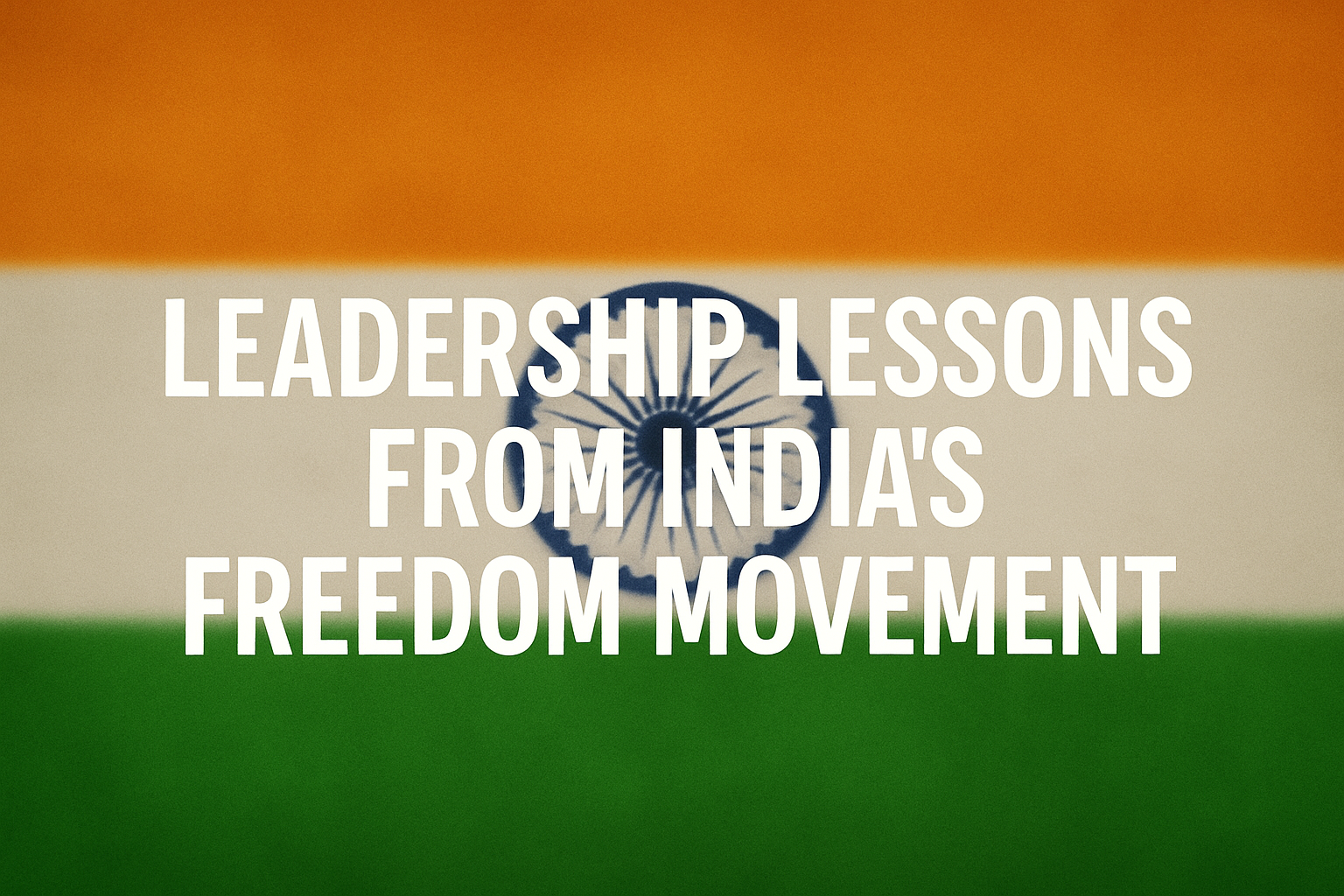Introduction
India’s struggle for independence was a defining chapter in history, and it also offers powerful leadership lessons from India’s freedom movement. Led by visionaries whose determination united millions, the movement was not only about gaining freedom, but also about guiding people through challenges with clarity and courage.
While no professional challenge can be compared to the sacrifices of the freedom movement, its leadership principles remain relevant. This article highlights key lessons from India’s freedom movement that modern project managers can apply to lead teams effectively.
Vision That Brings People Together – A Leadership Lesson from India’s Freedom Movement
The independence movement was shaped by a clear vision: the pursuit of freedom. This single goal brought people from different regions, cultures, and ideologies together, giving direction to every effort.
In projects, leaders play a similar role by defining and communicating the vision of success, much like what Project Management Institute (PMI) describes as the foundation of project leadership. Without a compelling vision, even the most well-structured plan fails to rally people toward its goal.
Leading by Example
Mahatma Gandhi embodied the principle of leading through action. His personal discipline and integrity made his message stronger than words alone, earning him trust across communities.
For project leaders, credibility comes from consistency between what is expected and what is practiced. When leaders demonstrate accountability and commitment, teams respond with greater confidence and dedication.
Adapting Leadership Styles
The freedom struggle saw different approaches to leadership. Gandhi’s non-violence, Nehru’s diplomacy, and Subhash Chandra Bose’s direct action were distinct, yet all contributed to the same cause.
In today’s projects, flexibility is equally important. A single leadership style does not suit every situation. The ability to adapt — whether by guiding, motivating, or making firm decisions — ensures that progress is not stalled by rigid approaches.
Building Collaboration
The independence movement succeeded because leaders encouraged cooperation across regions and groups. Despite differences, collaboration created unity that was stronger than division.
In project management, the ability to foster teamwork across functions and individuals is crucial. Leaders who promote open communication and shared ownership build a culture where collaboration drives progress.
Resilience in Times of Challenge
The road to independence was long and filled with setbacks, yet leaders remained steadfast in their commitment. Their resilience ensured that momentum was never lost, even in the face of adversity.
Project managers also encounter challenges — shifting priorities, delays, or unforeseen risks. Resilient leadership keeps teams focused, adjusts strategies when necessary, and ensures that the project continues moving toward its goal.
Conclusion
India’s freedom movement stands as a timeless example of leadership rooted in vision, adaptability, and unity. Though Independence Day has just passed, its spirit reminds us that perseverance and collaboration are as vital in projects as they were in winning freedom.
By applying these leadership lessons, project managers can go beyond managing tasks to truly inspire teams and achieve lasting impact. To strengthen these skills, our PMP® Training Programs are designed to help you build the same vision and resilience that great leaders once demonstrated.








